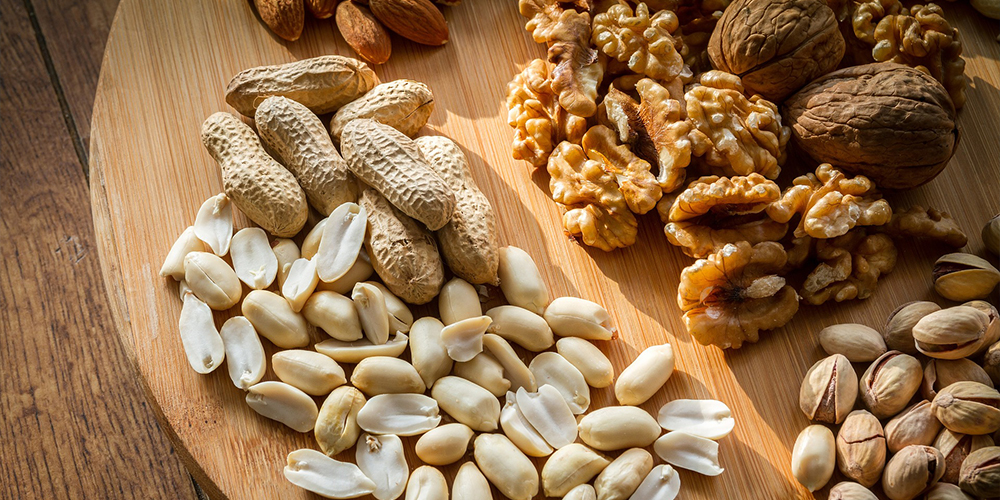1)Almonds:
Almonds are one of the most common and easily found nuts in our pantry and they are full of Vitamin E, dietary fibres, omega 3 fatty acids and protein. Studies have shown that eating almonds rich diet can help to reduce bad LDL cholesterol and inflammation in people with type 2 diabetes. Almonds also keep our heart healthy, reduce bad cholesterol and increase good cholesterol. When it comes to almonds, it is also important to know if you should have them raw or soaked. Researches show that soaking softens the hard texture of almonds and makes it easy for your body to break it down and absorb the nutrients.
A great source of omega 3 fatty acids, walnuts, are a popular nut when it comes to health. Eating walnuts reduce bad ‘LDL’ cholesterol and increase good ‘HDL’ cholesterol. It also helps to lower blood pressure in people with high blood pressure. A study, conducted in college students, advises that eating walnuts increased cognition among the students.
3) Cashew:
We all know that cashews play an important role in Indian foods sometimes for cooking delicious curries, roasted cashers for snacks and sweets for festivals. But not many of us know that they come with a lot of health benefits as well. They are full of vitamins, minerals, and antioxidants. The copper and iron in Cashews encourage the body to form and use red blood cells. Lutein and zeaxanthin present in Cashew, work as antioxidants and their regular consumption improves eye health. Cashews have a lot of calories and their excess consumption can lead to weight gain hence it is recommended to have them in moderation.
4) Hazelnut:
Hazelnuts are a great addition to many dishes like cookies, ice creams, and Salads. They are also a great addition to your diet when taken in moderation. They are a rich source of fibres, therefore, help in regular bowel movements. Being rich in antioxidants and Vitamin E, Hazelnuts, reduces the extent of cell damage.
5) Peanuts:
Delicious and crunchy peanuts are basically legumes, but they have all the qualities of nuts Peanuts are heart-friendly and as compared to other nuts just a handful of them can provide 7-gram protein per serving and dietary fibre. They also contain good monosaturated fats and less of polyunsaturated fat.
They are packed with Vitamin B Complex that contributes to blood flow to the brain. Peanuts are also a great source of dietary protein that is important for the development.
6) Pistachios:
They are a great combination of omega-3 fatty acids and antioxidants hence they support healthy cholesterol levels and prevents cell damage. Among nuts, Pistachios, contain the highest level of lutein and zeaxanthin, which are known antioxidants for eye health.
Key Takeaway







Leave A Comment